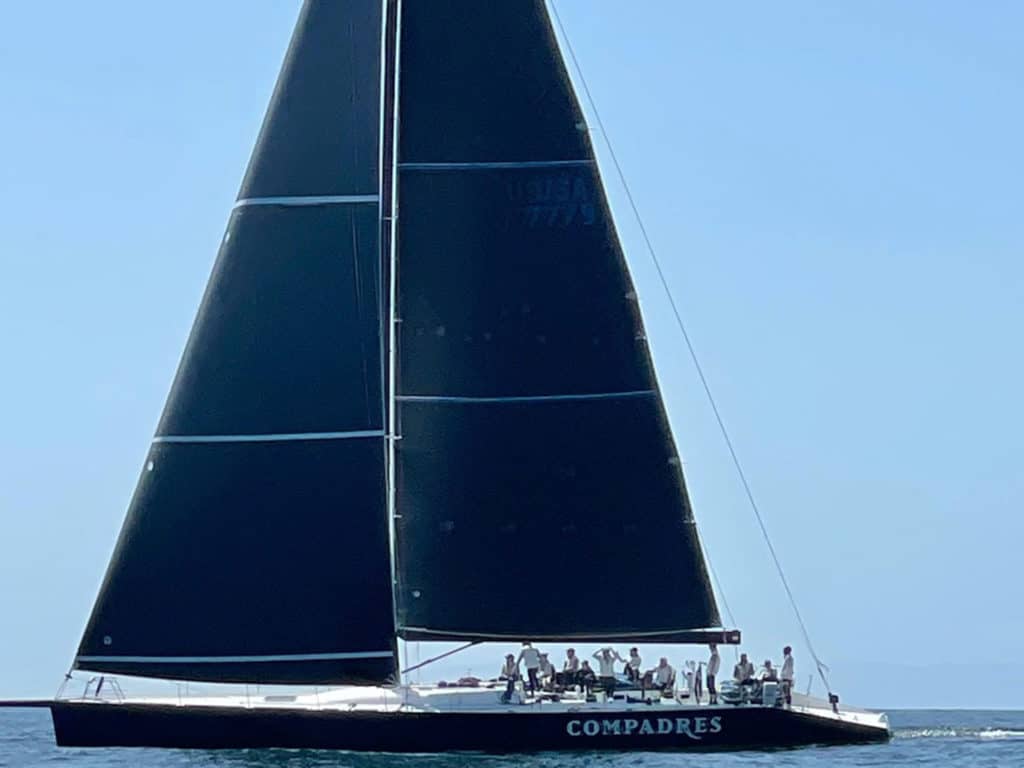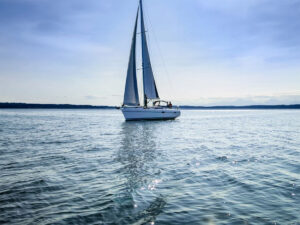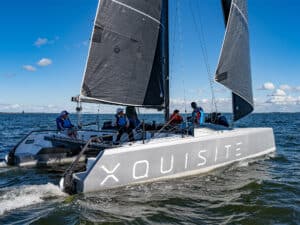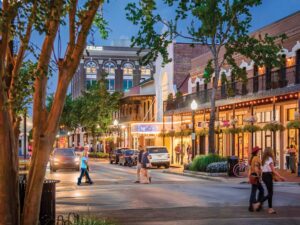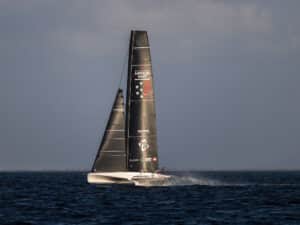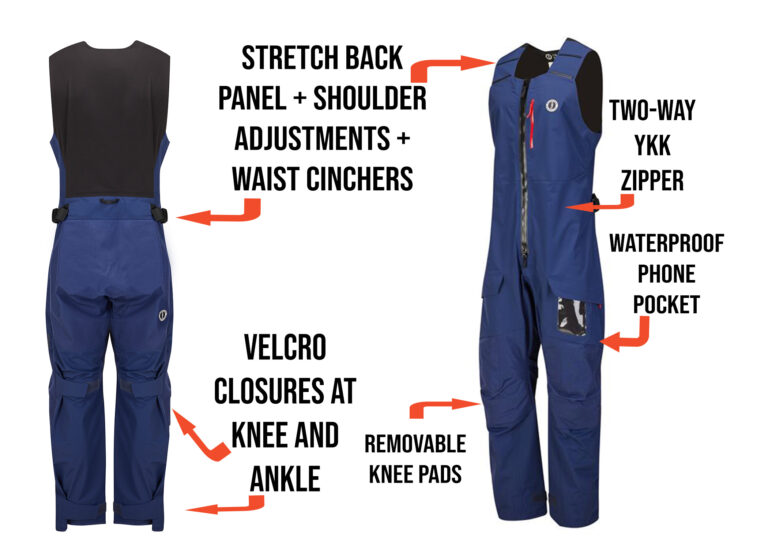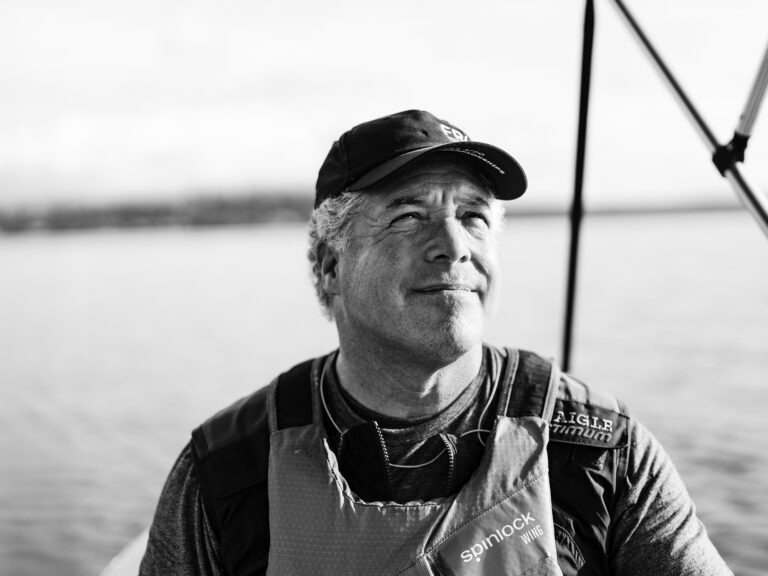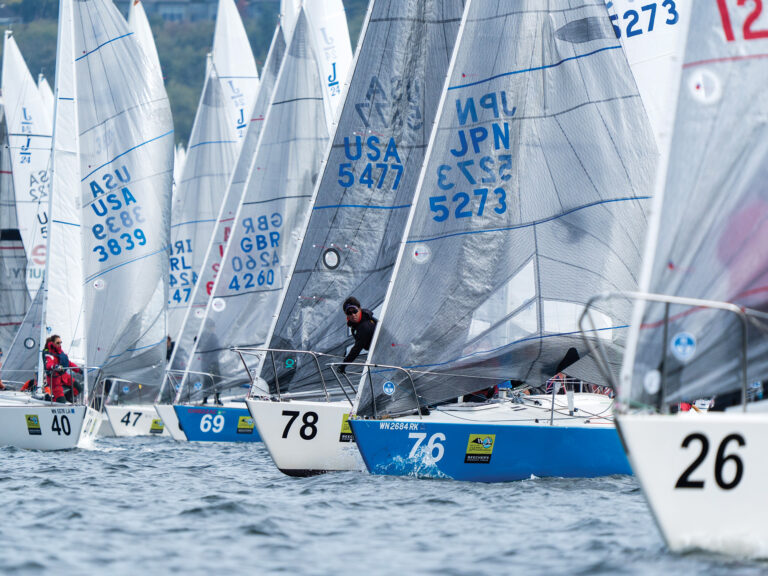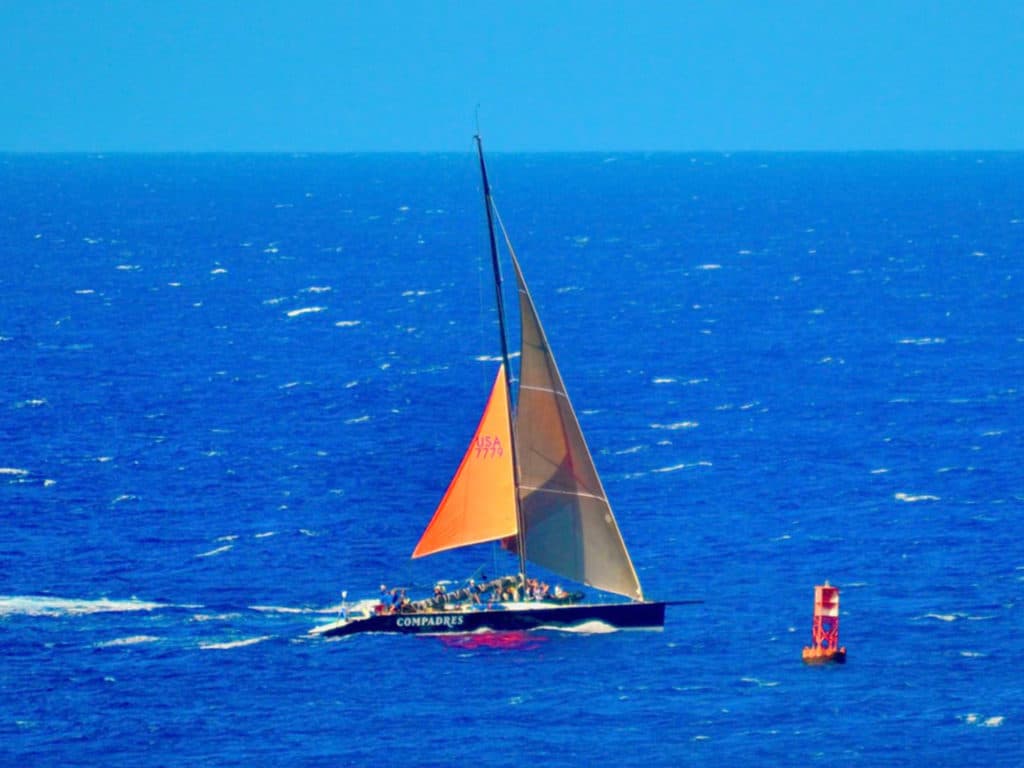
It was 2 a.m., about 1,800 miles off the coast of Los Angeles, beneath a pitch-black sky. The 2003 Andrews 77 Compadres had about 700 miles of Pacific Ocean left to cross in the 2021 Transpacific Yacht Race to Honolulu.
David Dahl, who, like most of the crew, was sailing in his first-ever Transpac race, was asleep belowdecks. Also aboard were his 23- and 28-year-old sons, and six of his closest friends.
A horrendous bang jolted him out of his berth. It was the kind of sound that left no confusion: Something was very, very wrong.
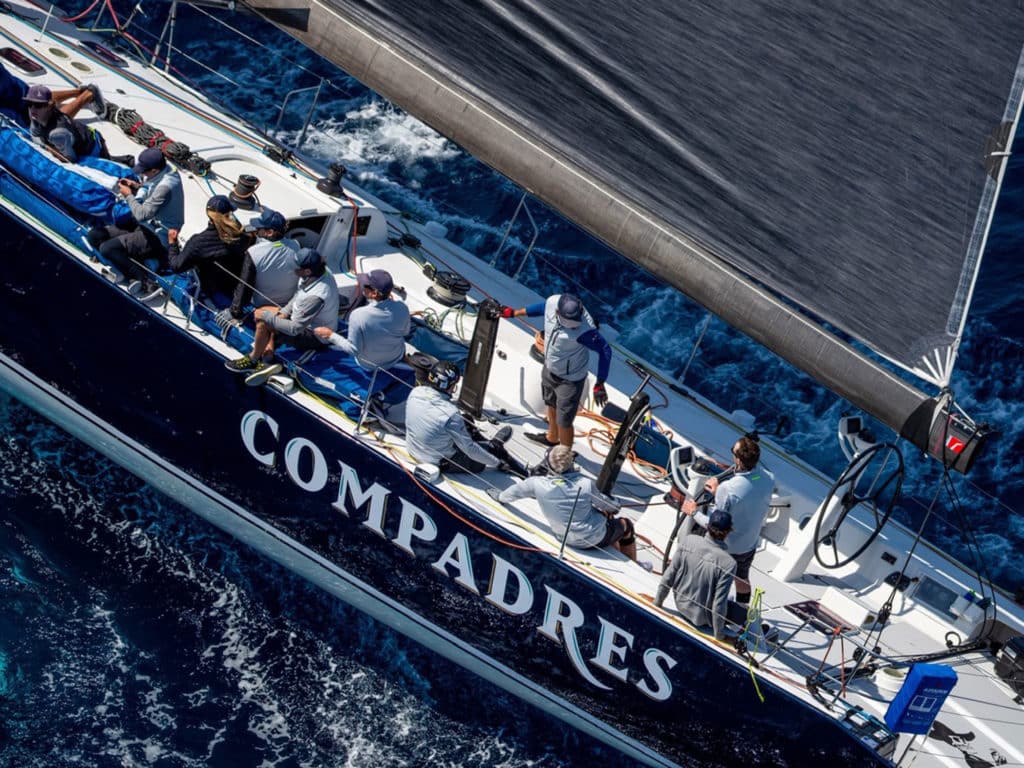
Dahl raced abovedecks. He could see the boom vang’s hydraulic fluid spilling everywhere, turning the top deck into a potentially deadly Slip ’N Slide. The motion of the boat was completely off-kilter too, making it even harder for everyone to stay upright.
He didn’t know it in the moment, but a 2-inch-thick stainless-steel bolt that held the boom vang in place had somehow cracked in half. The boom had then shot upward, with nothing supporting it in its usual spot. Then it started swinging to port and starboard, weakening the mainsail.
“It becomes an all-hands-on-deck emergency situation,” Dahl says. “The number-one thing we must do is get the boat under control.”
For Dahl, who is the CEO of Whittier Trust—a company whose history includes involvement with the Transpac race dating back to the 1920s—the episode was an adrenaline-pumping reminder that in any major undertaking, a lot of what ultimately happens comes down to preparation, people and equipment.
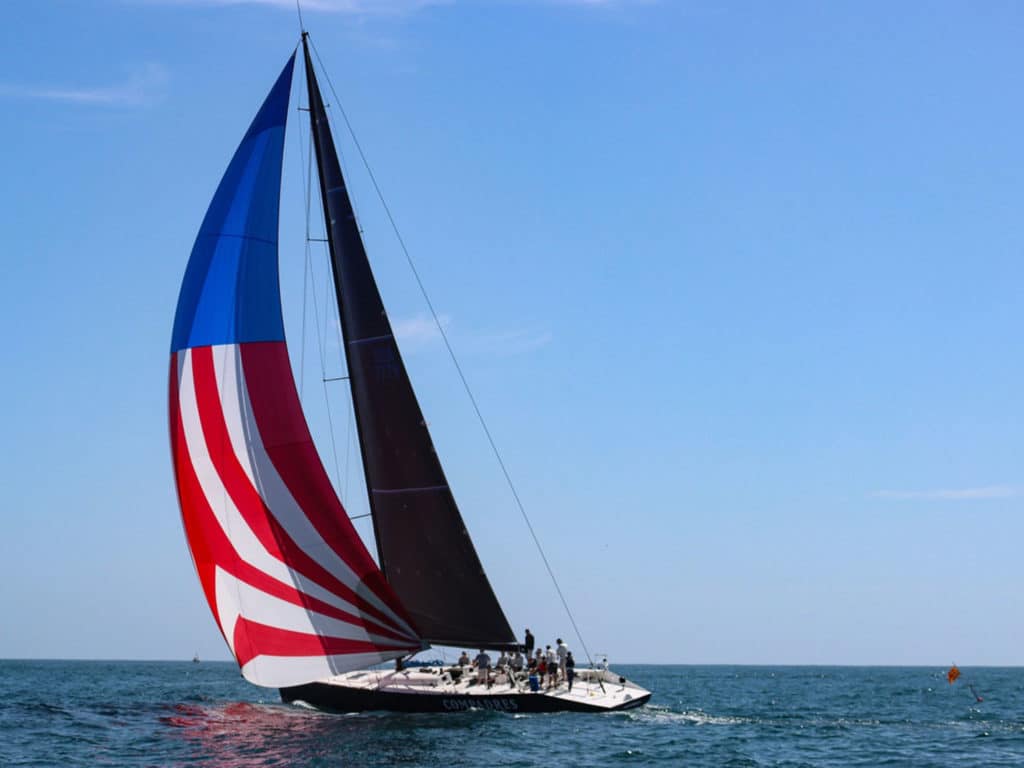
Whittier Trust specializes in wealth management, which means anticipating and reacting to all kinds of market shifts, not to mention ever-shifting news of the day. As with sailing, people making investments need to understand every possible element of the endeavor. They need to be trained for all contingencies, often with knowledge that has been passed down from generation to generation. They need to show commitment to the effort, along with creative thinking, passion and teamwork. And they need the tools and equipment to make the best possible decisions, even in the worst possible moments, because every situation or crisis moment is bound to be different from the next.
A boom vang is one of a sailboat’s most necessary elements, with only the mast, boom, sail and wheel arguably greater in importance. With the boom vang out of commission, the Compadres crew found themselves in one of the worst possible situations that training can prepare anyone to think about.
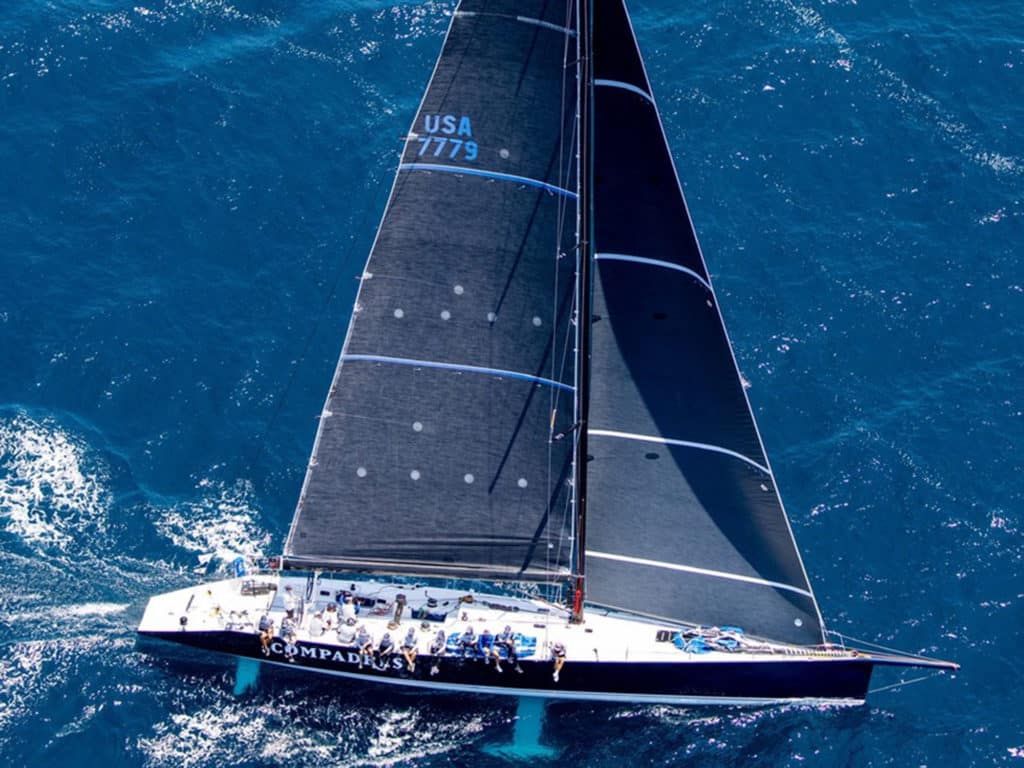
Which, of course, is a whole lot different from actually having to live through the moment and prove that you’re ready to handle it.
With the merciless darkness offering no help in terms of visibility, all 14 members of the crew acted without hesitation. They had been cross-trained in all of the onboard roles. They’d spent 18 months preparing for the Transpac race, sailing in various offshore races from California to Mexico, such as the Newport to Cabo San Lucas Yacht Race and the Newport to Ensenada International Yacht Race. And while they hadn’t run any drills in anticipation of the boom vang breaking, they had done plenty of practice runs that included putting their experience and creativity to work.
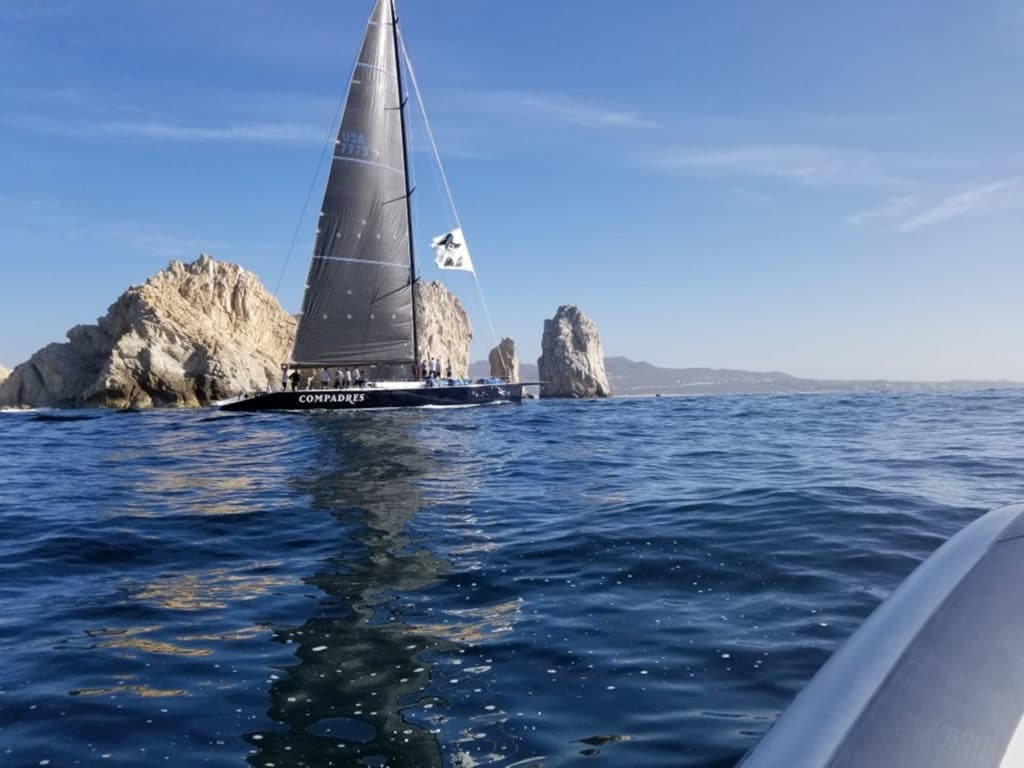
Everyone moved to their assigned positions on deck. They quickly but methodically dropped the sail to slow the boat’s motion. That helped with getting the boat back under control, but they knew that it wouldn’t be enough.
So they rigged a temporary boom vang, spending hours lashing ropes and lines to the mast and deck to hold everything in position.
“It worked,” Dahl says. “You no longer are necessarily in competitive-race mode, but you are in safety-mode to make it to shore.”
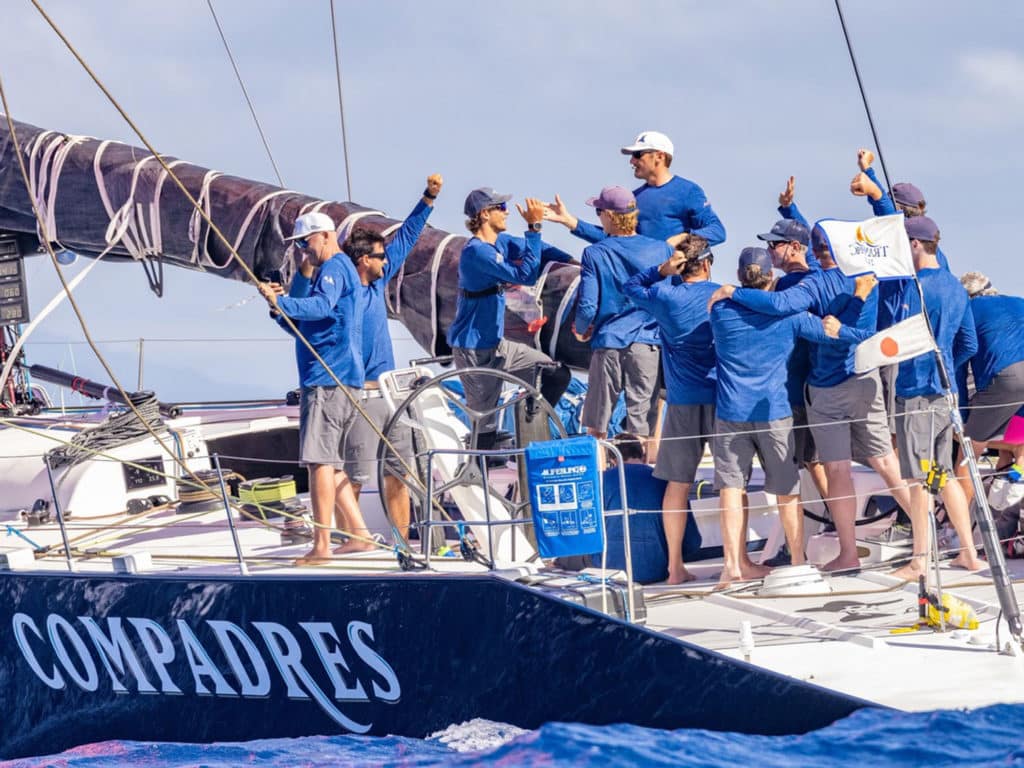
The way the Compadres crew proved their mettle was a continuation of Whittier Trust’s legacy. The company was the Heritage Sponsor for the 51st biennial Transpac Race, which the Whittier family sailed in 1923, when racing resumed after World War I. The boat, the 107-foot Poinsettia, had its sails blown apart in a two-day storm, forcing the crew to turn back.
Dahl and his crew—temporary boom vang and all—went the full 2,225-mile distance. And even despite the emergency, they still managed to have a whole lot of fun along the way.
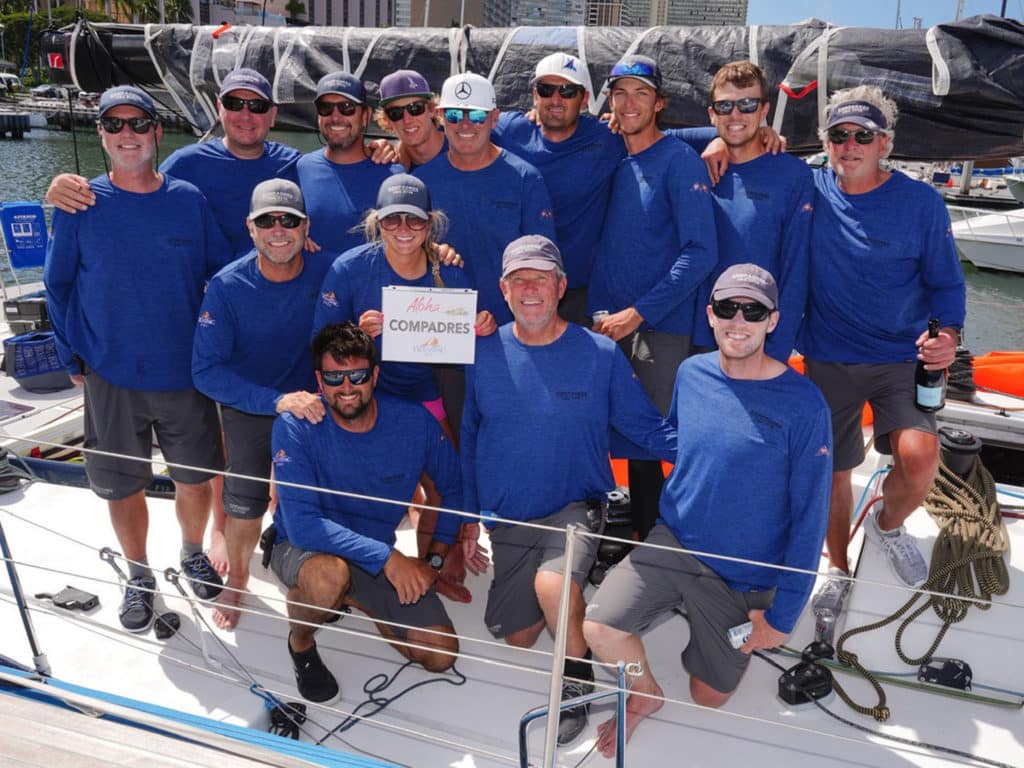
“Racing the Pacific, encountering whales, 20-foot swells, and windspeeds at night with families on board lives up to the Whittier history and tradition of being prepared to handle anything, just like with investments,” Dahl says. “It is a test of the human spirit. Like chess, and our work, our strategy is multifaceted. We are also rewarded with being part of a team and the thrill of the experience.”
To find out more about Whittier Trust and the wealth management services they offer, visit whittiertrust.com.
